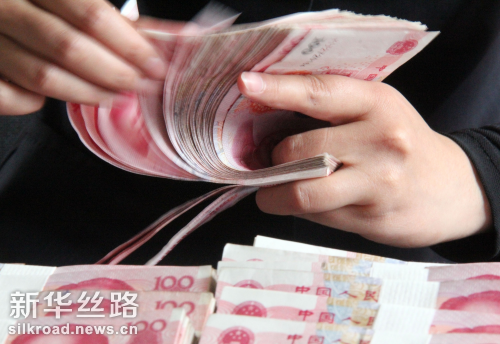BEIJING, March 21 (Xinhua) -- China's financial risks are manageable, but need to be continuously managed in a proper way, according to Jose Vinals, Chairman of Standard Chartered Plc.
"Chinese authorities are on top of financial risks. Financial crisis is going to happen when the authorities deny everything and don't do anything. Here the challenges are recognized, but it's important that they are dealt with the right speed and measures," Jose Vinals told Xinhua.
Vinals, who was previously a senior official focused on financial stability issues in the International Monetary Fund, said that China's financial risks came from years of significant growth of credit, leading to high-level corporate indebtedness, which means managing of leverage-related risks is very important.
China is cutting leverage, but it will take time, he said, adding that the key reforms needed in China are to make sure the corporate sector is reformed, especially state-owned enterprises, and also for the banking sector to continue strengthening capital and provisions to cope with the risks.
Vinals said he is positive on long-term prospects of the Chinese economy, and he thinks it is very wise for the government to aim for around 6.5 percent growth for 2017.
"The important thing is to support the growth with the right policy mix, right structural reforms, and also try to diminish excessive growth of credit, particularly credit growth from the shadow banking system," he added.
"Chinese authorities clearly understand how important it is to maintain and balance growth in a sustainable manner," he observed and added that China is making good progress in rebalancing its economy from external demand to internal demand, from more investment to more consumption, and from more manufacturing to more service.
Vinals said China's Belt and Road Initiative is the most important single existing globalization initiative fostering cross-border integration in terms of infrastructure, cross-border investment and international trade, and is a major factor to support growth, development and the prosperity of participating countries.
The world's second largest trade bank has a business presence in about two-thirds of the countries along the Belt and Road route. In 2016, Standard Chartered participated in 40 deals related to the initiative, such as supporting Chinese companies and local governments to develop water power plants in Pakistan and Bangladesh.
"Standard Chartered grows with globalization. China is an economy whose future is greatly dependent on globalization. Therefore, Standard Chartered and China are deeply united in being forces to foster and perfect globalization rather than suppress and damage globalization," Vinals said.




 A single purchase
A single purchase









